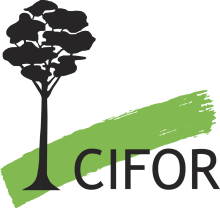Resource information
Secondary and logged-over tropical forests cover more than 600 million hectares. An international workshop held in Bogor (Indonesia) in November 1997 provided a forum of discussion on the research priorities for the sustainable management of secondary forests in Indonesia and more generally in South East Asia. Secondary forests were defined as: "woody vegetation regrowing on land whose previous forest cover was destroyed by at least 90 % by human activities or natural disaster". In these proceedings five papers focus on the use and manipulation of secondary forests as part of smallholders’ resource management strategies, six papers refer to management aspects of logged-over forests for timber production, mainly focusing on the application of silviculture (e.g. conditions for natural regeneration and enrichment techniques). There is also an analysis of the socio-economic consequences of forest changes in relation to the future economic development of two Indonesian provinces. The workshop concluded that secondary and logged-over forests are complex ecosystems providing a large range of timber and forest products and environmental values but a clear typology of these very different forests is not yet defined. Secondary forests are quite different from logged-over forests in both structure and species composition and there is a need to develop new silvicultural concepts for their management and silvicultural interventions favouring non-timber forest products. Indonesian forest policy and regulations and their implications for logged-over forests were debated. Socio-economic aspects were also recognised as an important feature, which should retain more attention in forest regulations than in the past. The potential of the Indonesian Selective Logging System (TPTI) in achieving and promoting forest management is now questionable. New rules based on research results from various research and development projects must be defined within TPTI regulations which, with adequate enforcement, have potential to attain many of the criteria associated with sustainable forest management. Logged-over forests will be the main suppliers of the timber industry for the next felling cycle (35 years) so achievement of sustainable forest management in the remaining production forests is both an environmental concern and an important economic issue for Indonesia.



